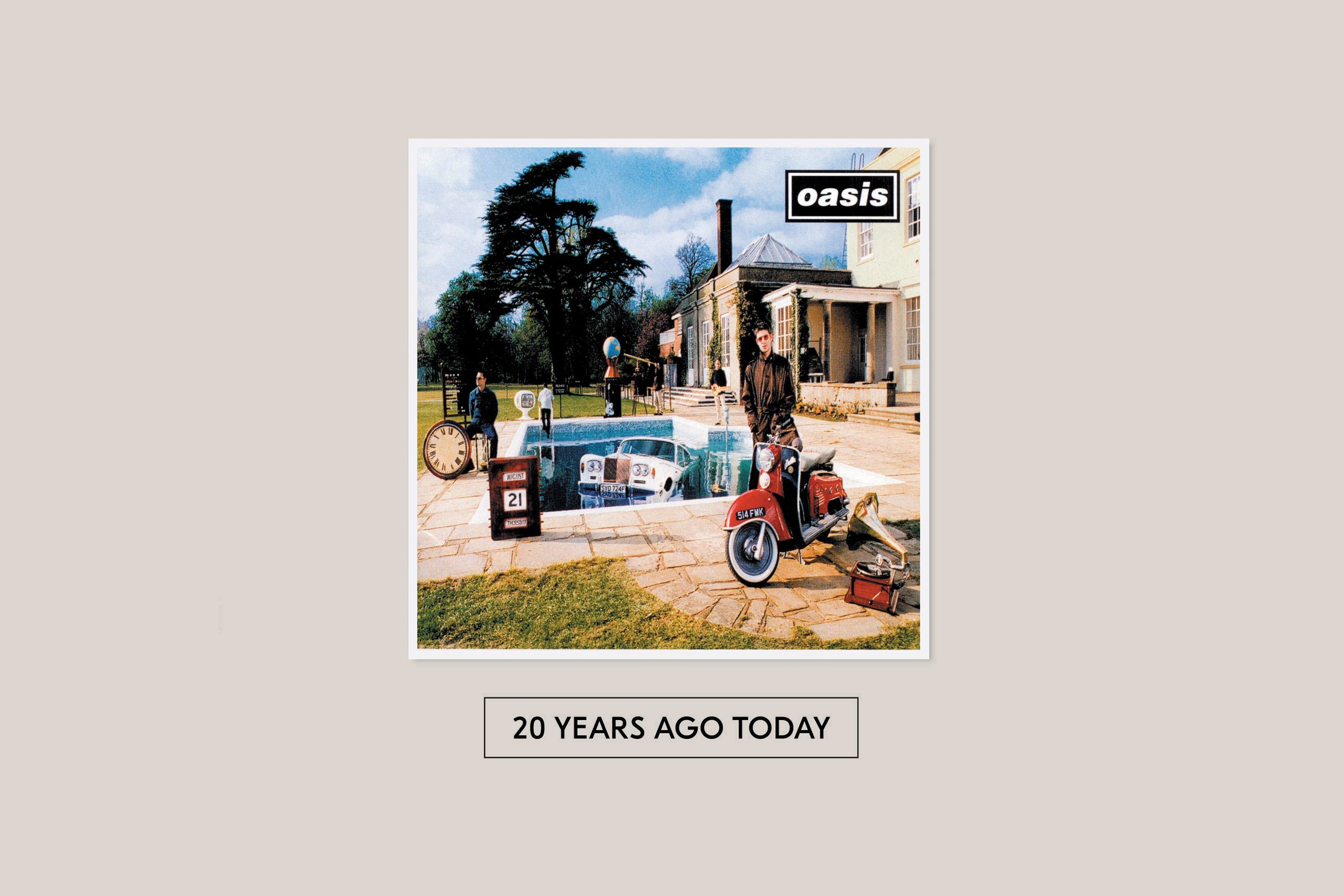As a result, actually listening to ‘Be Here Now’ in 2017 is akin to watching a notorious slasher flick whose effects have dated badly: the expectation is for something truly appalling, but in reality there’s only mildly offensive witlessness. Sure, ‘Stand By Me’, ‘My Big Mouth’ and the album’s title track have nothing to commend them, but divorced from 1997’s pantomime they are simply pub bores laden down with several thousand guitar solos. Revisiting the record, that humdrum mediocrity is a weird sort of letdown: if ‘Be Here Now’ were a cataclysm, it might at least be captivating. As it is, an album whose defining reputation is how disappointing it is retains that reputation today by not being bad enough: bluntly, perhaps most damningly, ‘Be Here Now’ isn’t even an interesting car crash.
Indeed, there are even some moments of genuine interest: although nearly every track is extended far belong its useful life, the extraneous outros on ‘D’you Know What I Mean’, ‘Magic Pie’ and ‘Fade In-Out’ make for rather interesting textural excursions, and offer a rather agonising tease of what more imaginative musical minds might’ve done with the deathless patchwork noodle that blights the record. Equally, while Noel Gallagher’s songwriting powers are audibly diminished, they haven’t entirely evaporated: ‘Don’t Go Away’ has a rather touching, uncharacteristically down-to-earth quality to it, and the belligerent pout of ‘I Hope I Think I Know’ wouldn’t be out of place on either of the album’s predecessors.
Nonetheless, the majority of ‘Be Here Now’ aims to be something enormous and falls flat on its face. The oft-repeated explanation for this particular style of failure is attributed to Oasis’ huge cocaine habit at the time, imbuing the band with the toxic combination of superhuman self-confidence and diminished self-awareness. However, another more imposing factor loomed large over the recording sessions of ‘Be Here Now’, in the form of regular Oasis associate Richard Ashcroft, whom Noel Gallagher regarded at the time as his only songwriting rival.
That winter, as Oasis began recording ‘Be Here Now’, The Verve were already making good progress on sessions that would become ‘Urban Hymns’, and once Gallagher heard the nascent mixes of that album, the same competitive streak that took him to war with Blur two years earlier returned: the blueprint for his third album had to be The Verve’s towering guitar plod, he decided, only bigger.
It was another battle lost: the following spring, ‘Urban Hymns’ beat ‘Be Here Now’ to the Brit for Best British Album and, despite Oasis being nominated for four awards that night, the band went home empty-handed. The ‘Be Here Now’ backlash began shortly afterwards.
Giant bands can make bad albums in a variety of ways. In ‘Be Here Now’, Oasis simply took the most boorish, knuckleheaded option. However, their fame meant that regardless of how quickly it sank, ‘Be He Now’’s reputation would unavoidably make ripples, and those ripples continue to be felt today: without the horror of its howling largesse, there’d have been no appetite for the oppositional politeness of Coldplay and Travis at the end of the 90s, and later James Blunt and Ed Sheeran, or even for the economy of The Strokes and the White Stripes in the early 00s. To go even further, the fact that ‘Be Here Now’ is the last British guitar album to make a significant dent on the UK mainstream hints at how it might’ve birthed a more general public mistrust of indie music that still lingers today.
However, for all its dispiriting legacy, what’s sadder still about this entire story is not how ‘Be Here Now’ inadvertently triggered a wave of obedient blandness in its wake, but the tantalising prospect of what might’ve been. “In the first week of recording, someone went out to score an ounce of weed, but came back with an ounce of cocaine,” producer Owen Morris famously recalled about a fatal fork in the road for ‘Be Here Now’’s recording sessions. Had Noel Gallagher kept his head instead, and been encouraged to let his predilection for psychedelia and public confrontation run wild instead of that for self-indulgence, competitiveness and grandiosity, it’s anyone’s guess how the musical landscape might look now.
Indeed, if only Gallagher had taken the time to study his nearest rival’s work more closely. He might’ve learnt, before it was too late, that the drugs don’t work.
To read all the other entries in Sam’s Twenty Years Ago Today blog, click here.
